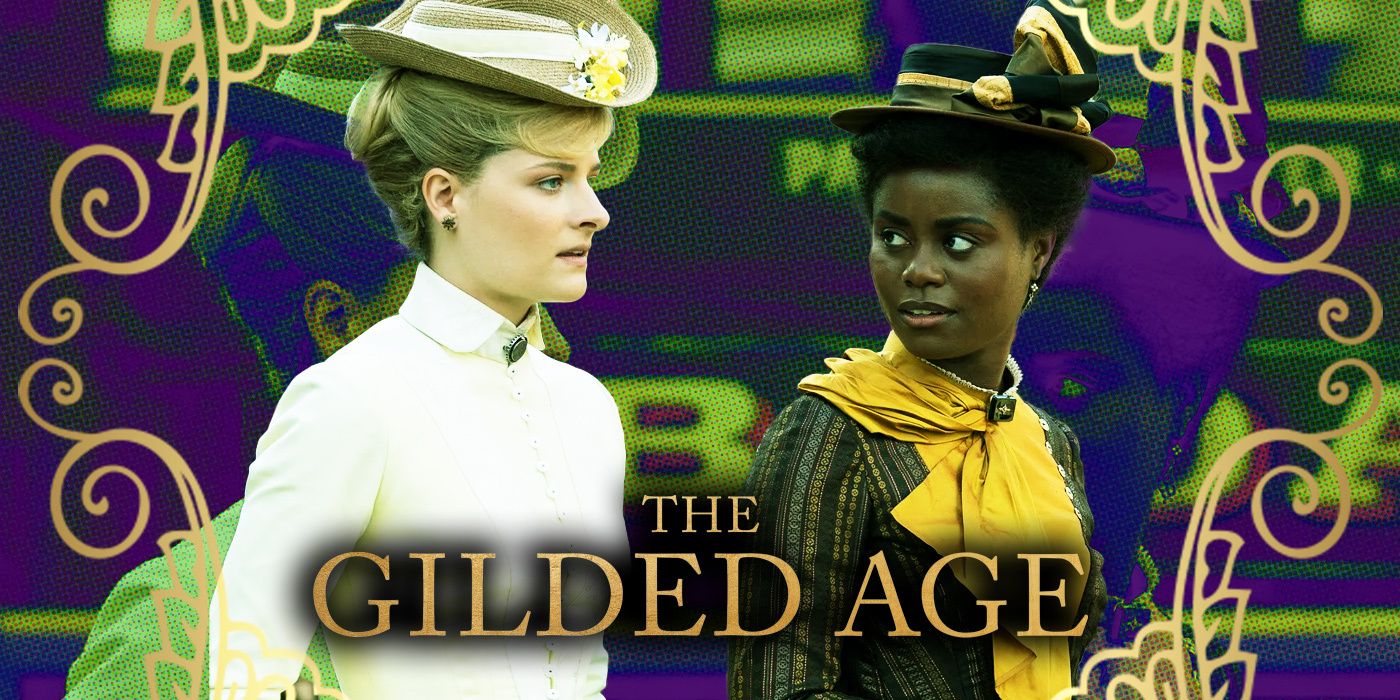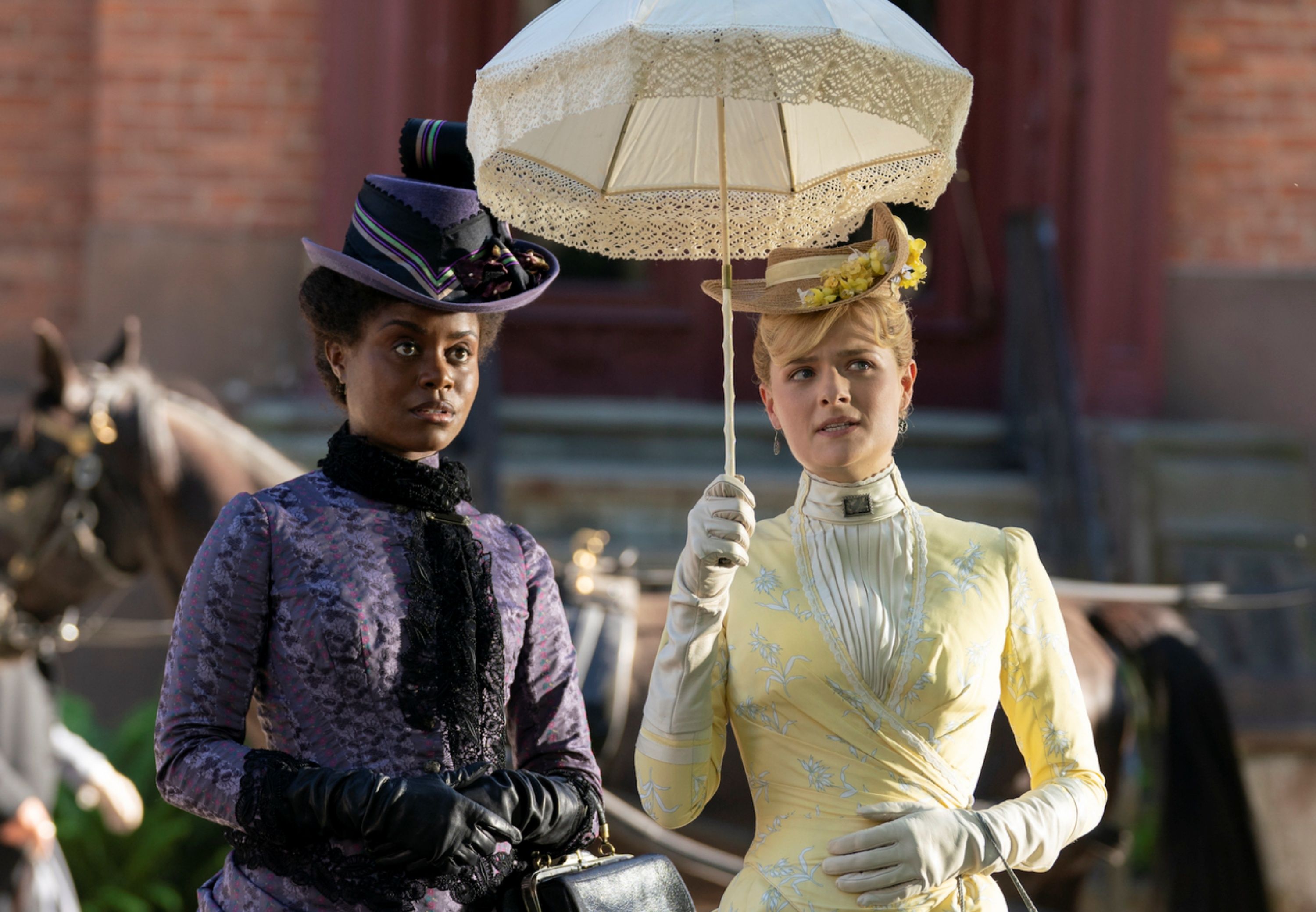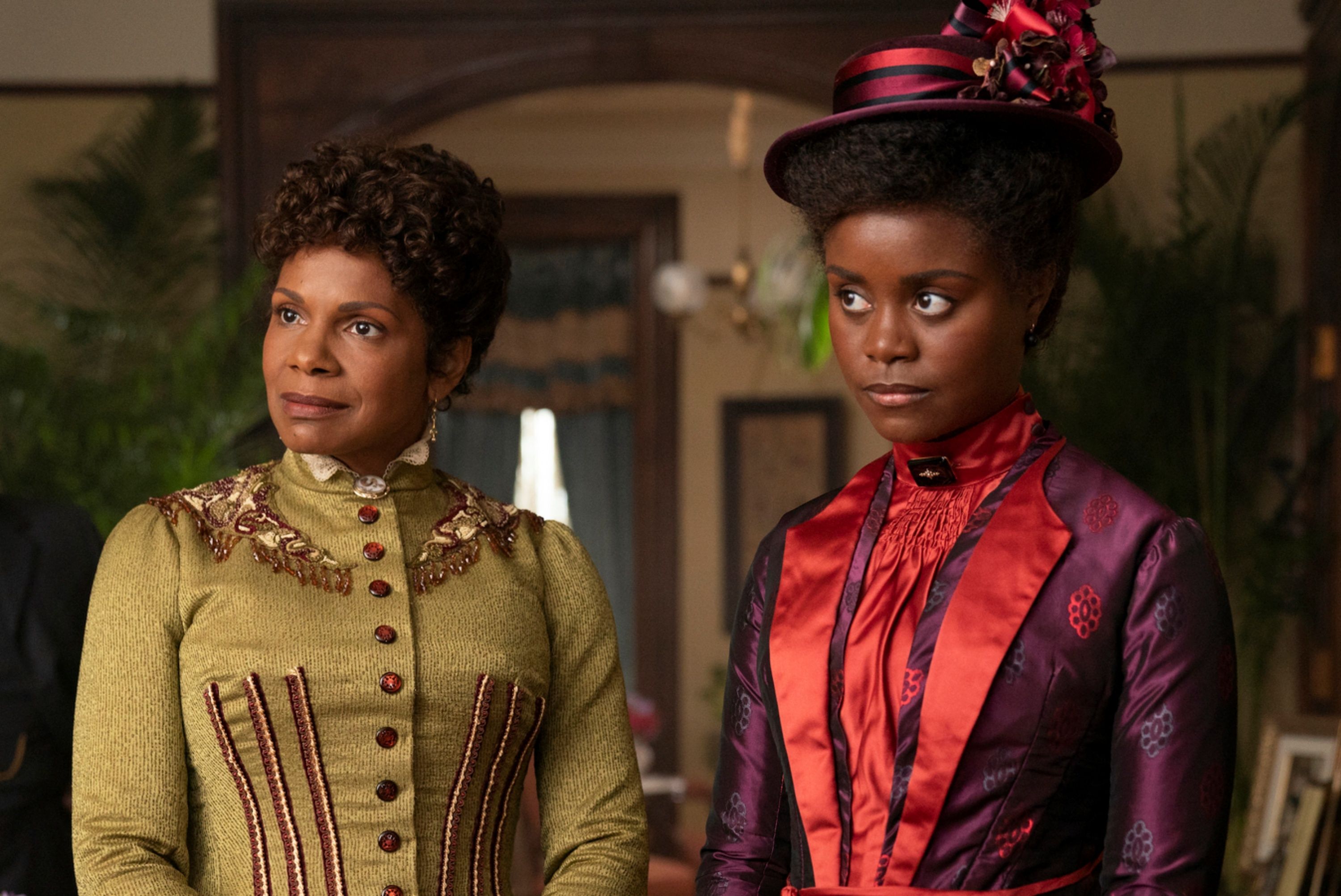Co-written by show creator Julian Fellowes (Downton Abbey) and Sonja Warfield, the HBO drama series The Gilded Age is set in the lavishly extravagant world of late 19th century New York and finds the orphaned Marian Brook (Louisa Jacobson) moving into the home of her aunts, Agnes van Rhijn (Christine Baranski) and Ada Brook (Cynthia Nixon). Once there, the young woman quickly learns the importance of whether you come from old money or new and that there are certain expectations for her that she might not be fully willing to follow, as she finds her place in society.
During a virtual junket for the new show, co-stars Jacobson and Denée Benton (who plays Marian’s new acquaintance Peggy Scott, an aspiring writer navigating the challenges that come with being both Black and a woman) spoke to Collider about how they identified with their characters, the effect of race and privilege during the Gilded Age, the dynamic of their friendship, spotlighting a part of history that we don’t learn enough about, and the strong sense of collaboration.
Collider: I love this show, these characters, and this world. There’s just so much to dig into. Where did each of you start with your characters? What was the thing that really helped you understand who they were, in such a big world?
DENÉE BENTON: I really started with myself. When I read Peggy’s character breakdown for the first time, I was like, “Oh my gosh!” This Black woman’s experience in the 1880s just felt so resonant with my experience now, with her relationship to her parents, to her dreams, to her employers. I was shocked at how I didn’t have to go very far. There were obviously the technical parts, of the corset and the ink well with my pen, but as far as the soul of Peggy, I felt a kinship with her, as if maybe she’s an ancestor that I didn’t know about.
LOUISA JACOBSON: I started from the outside in. I was so excited to do the show. I love reading about history. I got a membership to the public library in New York and went there every day. That’s a Gilded Age building, built in 1910 or something. I read encyclopedias, just to get a general sense of what this time period was like, specifically in New York. I watched documentaries. I was having trouble personalizing it and being like, “Okay, how can I be a human, now that I know about this?” And I looked to novels to solve that problem for me, specifically to Edith Wharton’s House of Mirth and Age of Innocence, in particular, because they deal with New York City elite society. Henry James’ Portrait of a Lady was also applicable to my process. All of them had these heroines who didn’t fit perfectly in society. They seemed like they could, but they just had this desperate yearning for something more and no arena to exercise it, aside from who they choose to marry, and even that was not always a choice.
Your characters are each trying to forge a new and different path in life, at a time when they’re also brought into each other’s orbits completely by chance. What conversations did you guys have with each other about race and privilege, and how that would affect them and influence their dynamic? It certainly seems like something that’s more present in Peggy’s mind than it is for Marian, who seems shocked when it gets pointed out to her.
JACOBSON: Yeah, definitely.
BENTON: Exactly. We all know it too well. We were having that conversation constantly. It was such a gift to be cast opposite someone who is like-minded. Louisa had her own interest in these types of conversations, so I didn’t feel like a tired educator. We really got to collaborate in getting to the meat of Peggy and Marian’s relationship. Some scenes that had originally been written a little bit more like a fairytale relationship, we really collaborated and struggled with Julian [Fellowes] and were like, “No, they need to argue. Marian needs to say something stupid. The only way that Peggy would ever develop trust for this person is if we have the opportunity to show the true friction and see how they recover from it.” And so, it was exciting to get to really try to find the nuances of that.
JACOBSON: It was important for me to not be this mythical, perfect, Barbie person, who had no biases or stereotypical ideas about Black people. I had to be in the world to tell this authentically.
BENTON: The fight that Peggy and Marian have is probably a fight that I’ve had with every white woman friend I’ve had since I was a kid. It just wasn’t that different. You have these moments where it’s like, “How did you think she was supporting herself? Have you seen her costumes the whole season?” The blindness is so ever-present. It was cool to get to dig into that together. That scene, I think it ended up being one of the favorites of all of ours to shoot.
JACOBSON: It’s my favorite to watch as well.
I love everything we get to learn about Peggy because it feels like, through her, we get to see an interracial friendship in this time period, we get to see Black professionals, Black elites, and the Black press, which are all things we’re not used to seeing in period projects, even just Black characters in period wardrobe.
BENTON: Yes.
What does that mean to you to get to show this to people and make people realize that there is a history that we’re all certainly not learning enough about?
BENTON: It’s the gift of my career, to get to be a part of bringing a face to these people who are so real. I think one of the most insidious tools of white supremacy is intentional erasure and this community has definitely fallen victim to that. We’ve had to completely forget and relearn our history, and therefore forget and relearn our oppression and never move forward. And so, I think it is an incredible act of resistance and a really powerful responsibility to say, “Yeah, I know you’re all surprised, but that’s only because of the figment of white imaginations of the stories we’ve been told. It’s not because these people didn’t exist, and it’s not because I don’t come from a lineage of people who existed like that.” I just feel really thankful, and I was very voraciously obsessed with every detail of the way they showed up on screen. I felt very protective. It was exciting. What came out of those types of collaborations were depictions of T. Thomas Fortune, which weren’t in the original scripts, and the depictions of Peggy and her mom in a coffee shop that was completely populated by Black patrons, and just fighting against the idea that there was ever a time that Black people didn’t exist in every level of existence.
What’s it like to also share scenes with Audra McDonald and look across the table at someone like that, as a scene partner?
BENTON: I’m not over it. I’ll never be over it. I can’t believe it. As a young Black musical theater kid, Audra is the person that you close your eyes, and you dream, “This is possible for me because of her.” I really tried not to freak her out too much with my praise. I am so thankful, in every way.
Louisa, I love watching your character stuck in between these two women that she doesn’t really know how to deal with. What are some of your favorite moments that you got to share, doing those scenes and working with Christine Baranski and Cynthia Nixon?
JACOBSON: There were so many wonderful moments. The moments with Pumpkin were hilarious. The carriage scene was so fun. I won’t give anything away, but there’s a moment when I run down the stairs and something shocking has just happened. I come upon them in shock and I had so much trouble with shooting that because I was laughing so hard, every time I got into the room. Christine and Cynthia both have such an amazing comedic skill that is so subtle and unexpected. I loved those moments. I also loved the intimate moments with Ada and I, with Cynthia, because she’s really the one who is kind to me from the start, wants to hear how I’m doing, wants to hear what my concerns and wants and needs are, and wants to hear how I’m feeling. She checks in with me. Those scenes were really moving and touching for me. Agnes is tough. I can’t get Agnes’ respect, through the entire season, and I desperately wanted it. I would find myself, after shooting those scenes, looking at Christine and being so surprised when she was so nice to me, just in life. I was like, “Oh, you were just so cold before, but now, you’re such a warm, lovely person.”
The Gilded Age airs on Monday nights on HBO.



